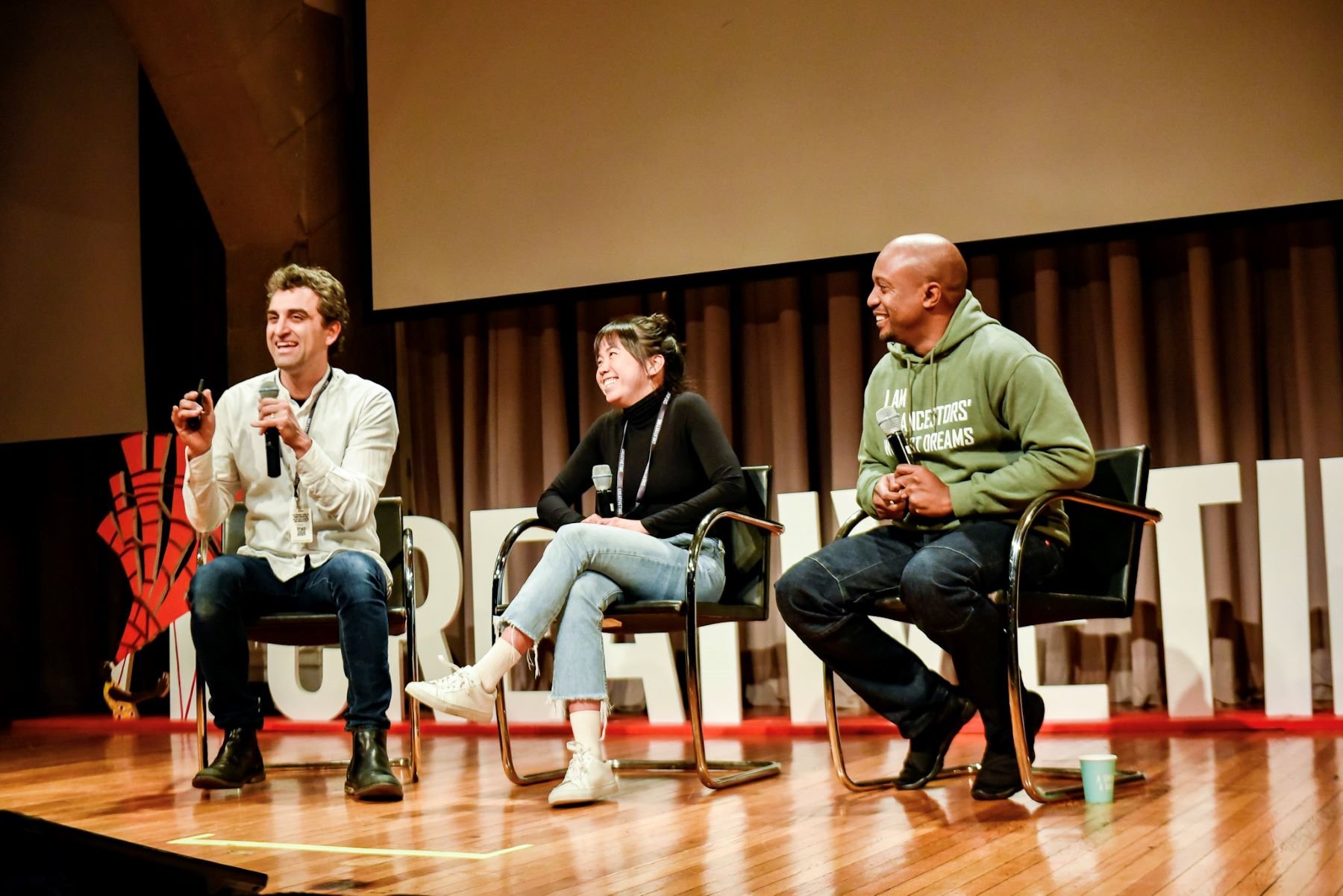
Nearly 250 years ago, representatives of the American colonies met in two Continental Congresses. At the Second Congress they signed a Declaration of Independence that put forth a radical and profoundly imaginative statement of values and ideals.
The United States now finds itself at a moment in which creative thinking and revolutionary imagination are desperately needed.
One month from now, in Los Angeles, California, a city and state with a rich history of ambitious social and creative movements, we will convene perhaps the largest gathering of creative minds in American history. This meeting of artists, academic, cultural institutions, and social justice advocates will take place February 28 to March 1. A first-of-its-kind event, it will be convened by For Freedoms, an anti-partisan platform to promote civic engagement, civil discourse, and direct action through art.
Since For Freedoms’s founding in 2016, we have worked to lead through culture, placing the arts at the forefront of a national conversation about how to move forward as a unified society. To revisit prior national definitions of liberty, we took inspiration from president Franklin Delano Roosevelt’s “Four Freedoms” speech, in which he proclaimed that America’s identity was centered on freedom of speech and freedom of worship as well as freedom from want and freedom from fear.
For Freedoms, Four Freedoms 1 (2018) in New Orleans, from the “For Freedoms 50 State Initiative.” Photo by John Ludlam.
Norman Rockwell created some of his most acclaimed works to illustrate those four freedoms. We restaged those artworks, but broadened the conversation from his middle-class, white, Anglo-Saxon context, inviting people of all races and religions to pose for our 21st-century reimaginings of those scenes. What was created was a vital illustration of a multi-cultural, multi-faith, multi-racial vision for America and the world.
One of the principles driving For Freedoms is at the heart of this question: How can artists and other storytellers and creative people come together to move beyond division and uplift humankind? How can we foster non-binary thinking, based on the philosophy that when we choose a side, someone is always going to lose? What does a future look like where no one wins or loses but everyone plays?
The For Freedoms Congress (FFCon) is where we start.
The idea for the Congress was seeded by our previous project, the “50 State Initiative,” the largest creative collaboration in American history. Working with 800 artists and 250 museums, arts institutions, and universities across the country, we supported billboards, exhibitions, and arts-led townhall meetings in every state and in Washington, D.C., and Puerto Rico that aimed to inject nuanced thinking into public discourse in the lead-up to the 2018 midterm elections.
Town hall at the Contemporary Art Museum St. Louis, 2018, as part of For Freedoms Town Hall: The 50 State Initiative. Photo by Virginia Harold.
What we learned was that the biggest asset that resulted from the project was the network of creative people who believed in their capacity to change the world through culture. We heard from these people that they wanted to meet face to face. The Congress is the first attempt to make that wish a reality.
We believe in the power of community and in the endless possibilities of working together to create the future we want to see. At this moment of collective national anxiety, we hope the sight of creative and empathetic people coming together will be a balm for the soul.
But we are aiming higher than that as well.
We want this gathering to supercharge this nation’s cultural infrastructure. We think that by working together, we can create a set of digital tools and plans for each institution to take back to their communities and begin to share with their fellow citizens. The idea is to spread engagement and purpose alongside these trusted and respected institutions.
Lawn sign activation at INTO ACTION, Los Angeles, 2018. Photo by Claire Woolcott.
Modeled on prior convenings in art and American politics, programming will include teaching, game-playing, co-creation, and reflection, and will be rooted in values such as community, transparency, and equity. A series of focused, artist-led planning sessions will result in an “artist’s platform for civic action” in 2020 and will articulate values shared within the greater community. There will also be four public townhall sessions in which participants explore Roosevelt’s Four Freedoms and what they mean today.
Events, all of which will be minimal- to zero-waste, will be hosted by the Los Angeles County Department of Arts and Culture, the Los Angeles Museum of Contemporary Art, the Hammer Museum, the California African-American Museum, the Japanese American National Museum, and the Crenshaw Dairy Mart.
We believe culture leads to change. But not without all of us playing a role to drive that change. It’s no mistake that this Congress takes place in an election year, in a nation as bitterly divided as it has been in decades. The conventions of the major political parties have become driven by ratings and stagecraft. Here it may be worth remembering that in his farewell address, George Washington warned against the “baneful effects of the spirit of party generally.”
In contrast, we plan to have artists lead genuine and candid discussions. The focus will be on beginning to build a new and different political future in an event that opens participants’ hearts and minds to deeper truths about themselves in a spirit of solidarity. As artists and other creatives, we can imagine no higher mission.